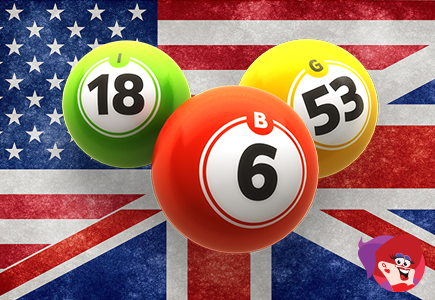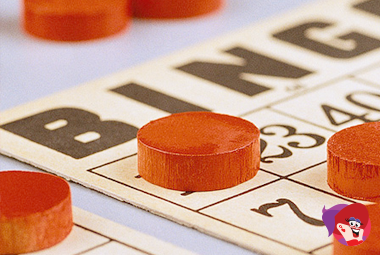
Who would have thought that the 80-year-old bingo lady stereotype was ever going to change, and all the more by the game itself? Bingo has always been a force to be reckoned with, and it is sure to start the reckoning when it seems fit.
The game of bingo has managed to retain a constant presence in British society for quite a few centuries now, with the US following suit as soon as it got over its ‘carnival phase'. While the late bloomer still had a long road ahead, UK bingo was long at its top destination - players in the UK were practically flooding over the bingo halls, especially since the 60s when cinema popularity reduced and theaters were left vacant. This period saw bingo's first rise to fame, and housewives of all ages were quick to adopt it and promote it to lengths that were beyond imagination at the time.
The popularity of the game went on and off in a rather fluctuating manner for the next 3-4 decades, up until the appearance of the World Wide Web. Provided that there was a whole new, unexplored market full of potential, it is only expected that it would take the example of so many other games and go online. Entire sites operating as virtual bingo rooms made everyday afternoons all the more enjoyable, but the greatest benefit was still their own, as youngsters eager for the digital era also joined the ring.
Nowadays, bingo is played both in land-based institutions and online establishments, with a varying degree of players and player types. What is interesting is that the demographics of the game, as they currently are, would very likely take you by surprise, considering you are talking about the UK market. Targeting US players, on the other hand, will leave you with a different impression, but nonetheless one where bingo is on the rise.

The Specifics of UK Bingo Demographics
For a long time, UK citizens saw this game as a way to relax, get out of the house and still spend time with your friends and family, with the added benefits of the chance to win something and keep your mind and senses as sharp as possible.
Namely, a study by Mark D. Griffiths from Nottingham Trent University and Carolyn Bingham elaborated in a chapter of their shared publication International Gambling Studies, gets into the statistic details of the bingo-playing population in Great Britain. The results undoubtedly prove the social character of the game, since as much as 93% of their target examinees claimed to be accompanied mostly by 'one or more friends or relatives'. As for the ‘entertainment vs. profit' criterion, 74% of the players included in the study attributed their success to chance, and only 7% claimed it to be due to their game skills.
The true demographics of bingo activities in the UK refer to the question 'who are the players' rather than 'what they think of the game'. In this line of thought, the aforementioned study has come up with some interesting information - the participants of the study weren't specifically chosen, in fact, those were the ones that agreed to take part, play bingo and answer a self-completion questionnaire. Unsurprisingly so, 354 females and only 58 males agreed to these terms, thus confirming the gender divide in land-based sessions and online platforms, which see about 75-25 female dominance in player traffic according to The Mirror. What was surprising was the fact that an approximate ratio of 50-50 illustrated their age (below or over 46).
More insight in the matter can be found in an article by BBC that starts off by claiming that 'bingo is no dying religion,' and following up with convincing arguments. Namely, as it seems, the game had been threatened by demise until the digital era came about, bringing with it many innovative ways to keep it afloat - bingo halls equipped with electronic machines or fully optimized online rooms run by operators providing all the different versions of the game. The article mentions isolated cases of 28 and 32-year-old siblings in order to illustrate the changing demographics of the player pool, meaning that this 'religion' has believers in all corners.
The Specifics of US Bingo Demographics
As you may well know, this game did not have the same amount of time to develop and spread across the United States as it did in the UK, but it did have Mr. Edwin Lowe to take it all the way to New York and beyond. Once bingo had established itself, its demographics looked much like those of the UK player pool for a long time, not only due to players' eagerness for fun and chatting, but also due to the fact that the 'one thing active seniors love to do is gamble'.
In the US, bingo became regarded as the pastime of the senior social strata, and so it has remained ever since. As stated above, this has managed to change in more or less drastic ways on UK grounds, but explicit findings in the US show a different movement in demographic proportions.
To illustrate, one must go back to the early stages of US citizens' acceptance of the game, which mainly found its audience among the senior population. The gender ratio remained to favor women over men on the whole, up until the turning point of the industry - the rise of the online platforms. In an article dealing with the potential for profit identified in any given operator, the author has supported their claims by a modern-day truth. Namely, from a predominantly female player pool, US bingo action, both land-based and online, has fallen into the dabbing capabilities of an entire age group.
Due to recent medical and technological advancements, the number of senior citizens has hit record numbers, both in the USA and on a global level. Elderly people are leading healthy lives and driven by their extended life expectancy and ability to function completely independently, US seniors have turned to the obvious option - online bingo. Younger generations are also interested in the industry, but a lack in volume is still far from allowing reliable statistical data to be publicly presented. Contrary to this, the on-going demographic trend is more than supported, especially considering data from the 1930s which saw 7 million senior residents of the United States (5.4% of the total population) and 41.5 million in 2012, provoking a demographic forecast of 20% by 2030.

What has become of UK & US Bingo - Compare & Contrast
On a final note, it is more than evident that while the game has seen a similar rise in popularity on both sides of the Atlantic, it still managed to progress differently up until modern-day bingo. A far more in-depth analysis is mandatory in order to identify and extract the underlying social, cultural and even economic and politic drivers that encouraged the opposing demographic trends. In A Qualitative Analysis of the Appeal of Online Bingo, the discussion and examination of several platforms through the experiences of 12 women brought about a final conclusion showing that what made them interested in the target websites were the 'textual, graphic and content elements'.
As for the US market, a glance at their legal stipulations regarding gambling activities, both land-based and online, and specifically the UIGEA back in 2005, is enough to identify the growing demand for it to be legal, as an article in the BingoReviewer managed to predict some time ago.
With the aforementioned social, cultural and even political drivers in mind, one can clearly state that there is much more to be accounted for when examining the bingo demographics of these two countries. Yet, a conclusion can be drawn - UK bingo is experiencing a demographic change of their player pool in terms of age groups and their growing awareness of the family and social values promoted by such activities. US bingo, on the other hand, is experiencing a demographic change in terms of their player pool volume, as more sustainable housing, medical and economic solutions created a rise in the main social segment of that pool, senior US citizens.
All in all, each society has a different way of treating bingo and all its latest releases, allowing it to grow, develop or expand, regardless of their contrasting characteristics. Judging by its promising future in these two comparative and contrastive communities, bingo isn't going anywhere any time soon.
Sources:
'Why the British may be falling back in love with bingo', Brian Milligan, bbc.com
'The profile of a bingo player - the results may surprise you', mirror.co.uk
'The Online Bingo Boom in the UK: A Qualitative Examination of Its Appeal', M. Stead, F. Dobbie, K. Angus, R. I. Purves, G. Reith, L. Macdonald, pdfs.semanticscholar.org
'Bingo Playing in the UK: The Influence of Demographic Factors on Play', M. Griffiths, C. Bingham, researchgate.net
'How U.S. demographics is related to investing in a gaming company right now', Christopher Malcolm, born2invest.com
Your feedback
Please enter your comment.
Your comment is added.
Comments (1)
zenekk87
04/06/18, 02:04:51 AM
such a shame that bingo its still so much less popular then online casinos









